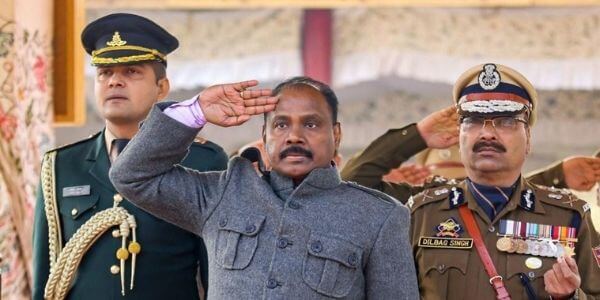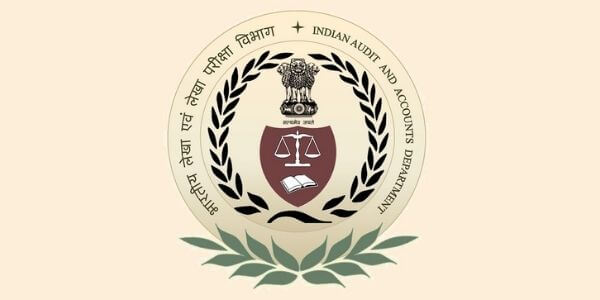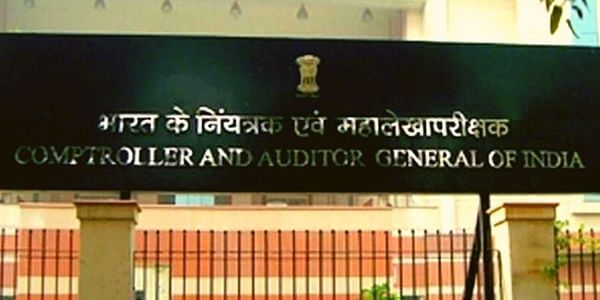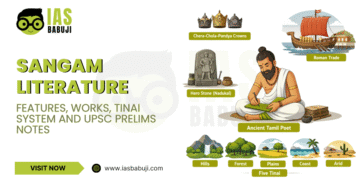In this essay, we shall go over the current and present chairperson officers of the CAG of India in great depth. It’s a crucial topic in the General Studies Syllabus. We will also discuss the duties & power of the cag chairman. It is listed in the following Constitutional Bodies: In General Studies, there are a variety of statutory, regulatory, and quasi-judicial agencies. 2nd Paper. Because questions from this static section of the IAS Syllabus might be asked in both the UPSC Prelims and UPSC Mains exams, IAS students should thoroughly understand their meaning and application.
Introduction
Article 148 of the Indian Constitution establishes the independent office of the Comptroller and Auditor General of India. He/she is the head of the Indian Audit and Accounts Department as well as the public purse’s guardian. India’s CAG is a widespread name for it. One of the most crucial foundations of India’s democratic governance system. Other institutions include the Supreme Court, the Election Commission, and the Union Public Service Commission. When it comes to the field of financial administration, the Comptroller and Auditor General of India. Audit reports guarantee that the executive (i.e., the Council of Ministers) is accountable to Parliament.
Check out the UPSC GS Paper 1 Syllabus and the GS 3 – General Studies Paper for more information.
Current CAG of India
The present CAG, Girish Chandra Murmu, was appointed as the new Comptroller and Auditor General of India on August 7, 2020. (CAG.) He was previously the Lieutenant-Governor of the Union Territory of Jammu and Kashmir. Prior to him, Rajiv Mehrishi took over as CAG on September 25, 2017. The President of India appoints the CAG. Through a warrant signed & sealed by him. Before commencing office, the CAG chairman takes an oath or affirmation before the President, promising to uphold the Constitution of India and to bear true faith and allegiance to it.
- to protect India’s sovereignty and integrity;
- without fear or favor, affection, or ill-will, to carry out the obligations of his office honestly and truthfully to the best of his skill, knowledge, and judgment;
- uphold the law and the Constitution
- The CAG serves for six years or until he or she reaches the age of 65, whichever comes first.
- He/she can resign from his/her position at any time by writing a resignation letter to the President, and he/she can also be removed from office by the President on the same grounds & in the same manner as a Supreme Court Judge.
You can go to CAG’s official website by clicking here.
We’ve talked about India’s present CAG in this article. Let us now discuss the duties, constitutional provisions, and independence of the CAG.

Duties of the CAG of India
The functions and powers of this officer are described in Articles 148, 149, 150, and 151 of the Indian Constitution. The following is a summary of the numerous topics covered in these Constitutional Articles:
- Article 149: To discharge such duties and exercise such powers in connection to the accounts of the Union of India, the states, and any other bodies or authorities as may be specified by any law passed by Parliament.
- Article 150: The Union of India and the States’ Form of Accounts: To specify, with the President’s consent, the format in which the Union’s and States’ accounts are to be kept.
- 151 Article: CAG Reports – To report on the Union’s or State’s accounts to the President or the Governors of the States. Article 279(i) of the Constitution also requires the CAG to determine and certify the net profits of any tax or duty stated in Chapter I of Part XII of the Constitution. Aside from these constitutional provisions and the Duties, Powers, and Conditions of Service Act of 1971, it’s worth noting that the CAG had a two-dimensional duty prior to 1976, namely accounting and auditing.
- The CAG’s chairman’s responsibility is account auditing as a result of the separation of accounting and audit in 1976. Accounting has been done by the various ministries themselves with the support of the Indian civil account service since 1976.
- He determines and certifies any tax or duty net profits, and his certification is final.

Constitutional Provision
- Article 148 covers the appointment, oath, and terms and conditions of service for the CAG.
- Article 149 deals with the Comptroller and Auditor-General of India’s responsibilities and powers.
- According to Article 150, the Union’s and States’ accounts must be kept in the format that the President prescribes on the advice of the CAG.
- The reports of the Comptroller & Auditor-General of India relating to the Union’s accounts must be presented to the President, who must cause them to be laid before each House of Parliament, according to Article 151.
- Article 279 – The Comptroller & Auditor-General of India determines and certifies the “net proceeds,” and his or her certificate is definitive.
- 3rd Schedule – Section IV of the Third Schedule of the Indian Constitution specifies the form of oath or affirmation that Supreme Court judges and the Comptroller and Auditor-General of India must take when taking office.
- The District Council’s or Regional Council’s accounts should be kept in the format defined by the CAG, with the President’s consent in the Sixth Schedule.
- Furthermore, the accounts of these bodies are audited in the way that the CAG deems appropriate, and the reports relating to such accounts are given to the Governor, who causes them to be brought before the Council.
Independence of CAG
- The Constitution contains many measures that protect the CAG’s independence.
- The President appoints the CAG chairman by warrant under his hand and seal, with a six-year term or 65 years of age, whichever comes first.
- The President can only dismiss the CAG in line with the Constitution’s protocol, which is the same as the procedure for removing a Supreme Court Judge.
- Once he quits or resigns as a CAG, he is ineligible to occupy any post in the Indian government or in any state.
- After his appointment, his salary and other service conditions cannot be changed to his detriment.
- After consulting him, the President only prescribes his administrative authority and the conditions of employment of personnel employed in the Indian Audit and Accounts Department.
- Administrative expenses for the CAG’s office, including all salaries, allowances, and pensions, are charged to the Consolidated Fund of India, which is not subject to a vote.
- Only after consulting him the President prescribes his administrative powers and the conditions of employment for those employed by the Indian Audit and Accounts Department.
- The office of the CAG’s administrative expenses, which include all salaries, allowances, and pensions, are charged to the Consolidated Fund of India, which is not subject to a vote.

First CAG of India
Former civil officer V. Narahari Rao was the first CAG to serve in the position from 1948 to 1954. In 1954, The govt of India awarded him the highest civilian honor, the Padma Bhushan, in appreciation of his outstanding contributions to the Indian civil service.

Conclusion
To summarise, we have covered all of the details of the Current/ Present CAG Chairman of India, Duties of the CAG of India, Constitutional Provisions, Independence of the CAG, and First CAG of India in the above article. Also, go to the official website to receive all the information you need about the IAS exam. Furthermore, passing the IAS exam necessitates putting forth all of one’s efforts and hard work. One can pass the IAS exam with the appropriate plan and direction.
FAQ- CAG of India
The CAG is an independent body established under India’s Constitution and is not influenced by the government. It was established to keep track of the government’s revenues and expenditures. The President appoints the CAG, who may only be dismissed from office in the same way and on the same grounds as a Supreme Court judge.
The Indian Audit & Accounts Department (IA& AD) assists the CAG in carrying out his constitutional duties. Around 600 Indian Audit & Accounts Service (IA&AS) personnel work at the top and middle management levels of the IA& AD. They are either recruited directly through the UPSC’s Civil Services examination or promoted from Group B. (supervisory staff). There are around 47000 subordinate cadres in all. They are made up of a gazetted supervisory cadre of Senior Audit/Accounts Officers, Audit Officers, and Assistant Audit Officers (Group B), as well as a support personnel cadre (Group C)
The Office of the Comptroller & Auditor General was founded in 1858 when the British Crown assumed control of British India from the East India Company. Sir Edward Drummond, the first Auditor-General, was appointed in 1860 and in charge of accounting and auditing.
Editor’s Note | CAG of India
In conclusion, the above article contains all relevant information about India’s present & First CAG chairman, the Independence of the CAG, and Constitutional Provision. For the UPSC test, this is a significant topic. As a result, we suggest that you make a list of all the key things that you can go over throughout the exam. The entire exam syllabus, as well as the exam format, must be understood. It is the first and most important item to do, and it completes half of your task. After that, you can plan your time properly. Best wishes for your upcoming exam.







